Hokol Vuh Culinary Festival Brings Chefs to the Yucatán to Spotlight Mayan Culture

It was mid-November, and group of high-profile chefs were kneeling in a cluster. René Redzepi, looking up, was waiting for someone to drip honey into his open eyes.
We were three days into Hokol Vuh, a lesser-known culinary festival in the Yucatán Peninsula, learning about the region’s famous Melipona honey. More medicine than sweetener, this honey — produced by a variety of stingless bee indigenous to the Yucatán — has been used for centuries by the Mayan people to help heal wounds and promote eye health, including as a treatment for cataracts.
An apiarist extracted the honey from an open hive, handing the wide-mouth plastic syringe to Redzepi, who squeezed a few drops of golden liquid into his eye. The honey smarted upon contact, but after a few blinks, his pain dissipated and his eyes were bright and fresh. The bees hummed quietly in the background.
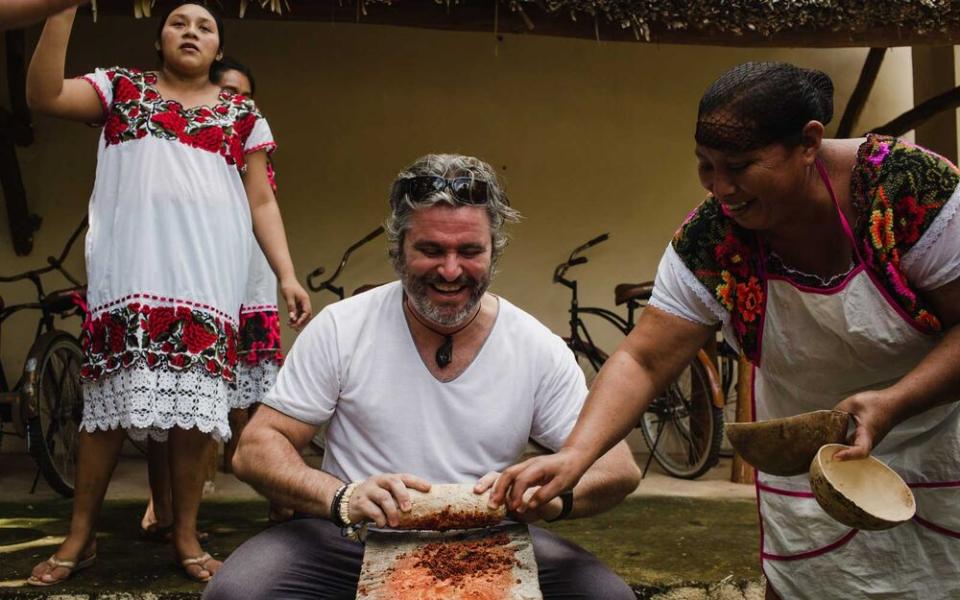
“This for me, is the profoundness of the Yucatán,” Redzepi told me after his honey experience. “The dogs don’t bark, the people don’t shout, and the bees don’t sting.”
While working on his Tulum pop-up in 2017, the Noma chef partnered with Roberto Solís — a well-known Mexican chef and de facto culinary ambassador from Mérida, the capital of Yucatán state — to create a new festival spotlighting and promoting Mayan culture. They imagined an event that could go beyond a traditional food festival, built on intimate discovery of local products and bound to centuries of history. Their dream became a reality with the help of a local organization called Fundación Haciendas del Mundo Maya, which funds projects to support Mayan communities in the region.
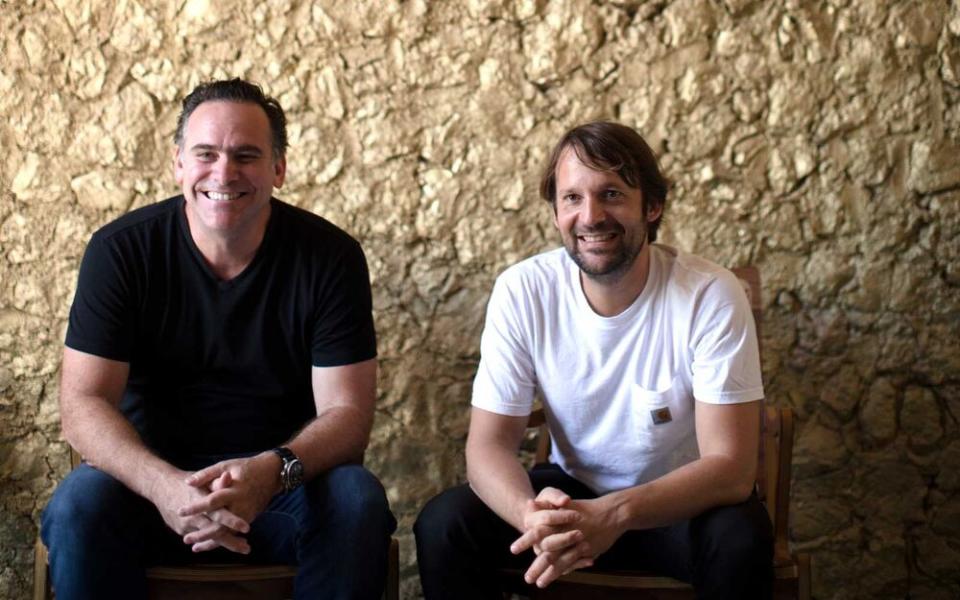
“These things take a long time to generate,” Redzepi told me during the festival. “Everyone wants big events and dinners to bring in some quick tourism,” but he and Solís wanted to make sure the festival truly benefited people living in the Yucatán today. “This is a long-term project that requires a continuous effort. Hokol Vuh is about having people really take their time to understand the Yucatán. A lot of the events are about just food, but for me, the culture and the people are just as important.”
I was there for the second-ever iteration of the event. Redzepi and Solís had invited 20 or so chefs at the top of their industry to participate in hands-on, eyes-open learning for a week, culminating in a ticketed multi-course dinner for the public. (Standouts this time included Leonor Espinosa of Bogotá’s Leo Cocina y Cava, former Alinea chef Mike Bagale, and Daniela Soto-Innes of Cosme in NYC.)
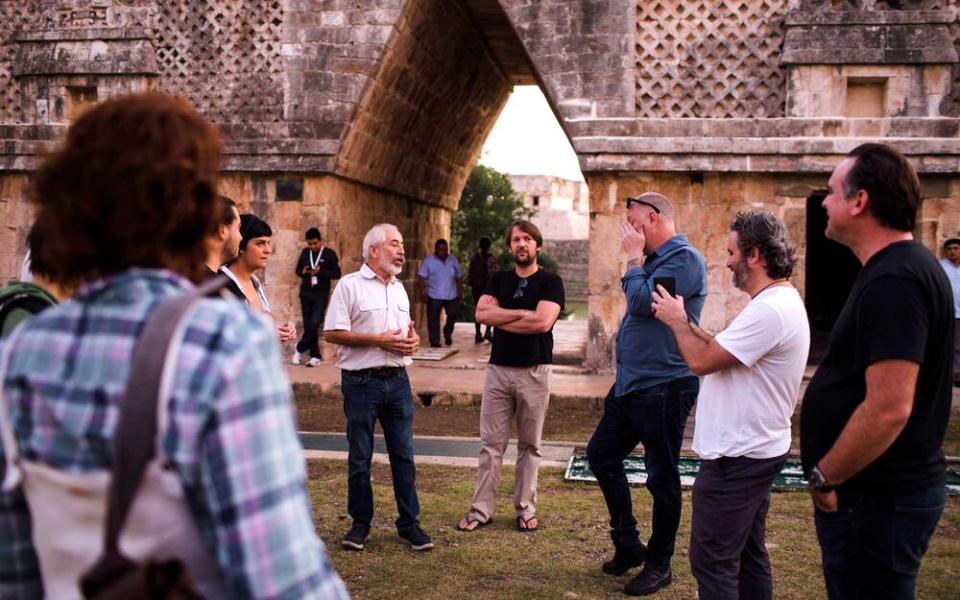
The festival is based out of Mérida, but many of the events are held at the Luxury Collection Haciendas, renovated historic estates scattered throughout the peninsula — and several outings had us traveling via caravan between small, isolated villages, where the population remains largely Mayan.
One of our first outings dropped chefs and guests at the base of an deserted pyramid, buried in the jungle. The organizers had spread out a cornucopia of local ingredients on a long communal table. The chefs swarmed, picking up pods of guaje seeds and slicing into scarlet mamey fruits, sampling jet-black sapotes that tasted like chocolate pudding. Some were well acquainted with Mexican ingredients — like T.J. Steele, whose Brooklyn restaurant Claro received a Michelin star for its Oaxacan cuisine last year — but many had never been to Mexico.
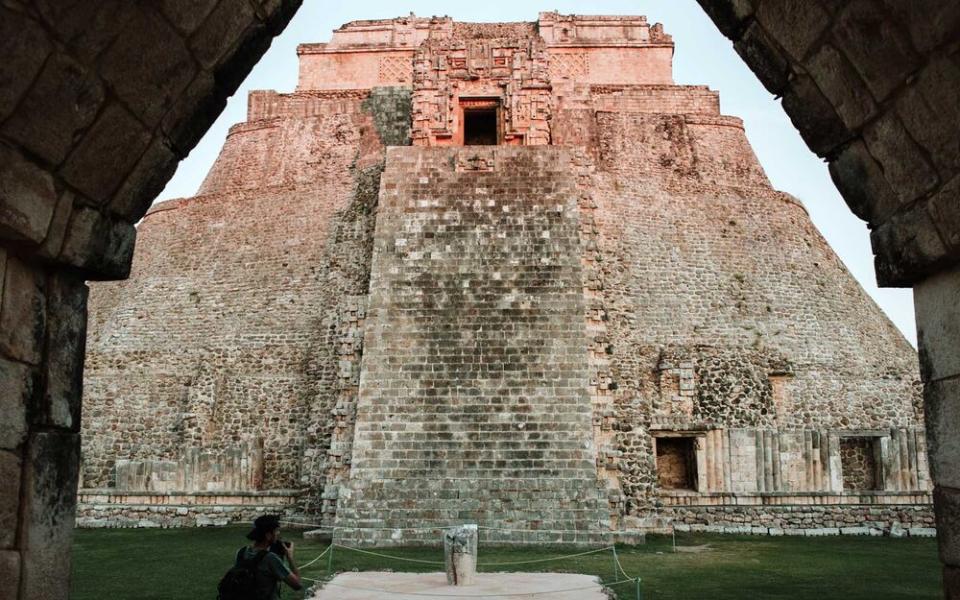
Archaeologist Tomas Gallareta Negron was on hand to answer questions from the group. “For the Americas, the Yucatán and the Caribbean functioned similarly to the Mediterranean in Europe," he told us, "with its transfer of ideas, ingredients, and people.” Case in point: the queso de bola on the table. This round, semi-hard cheese used in traditional dishes like marquesitas and queso relleno, but is actually Dutch in origin, brought here by Spanish colonizers. The local cuisine today is a rich mix of indigenous, Caribbean, and European influences.
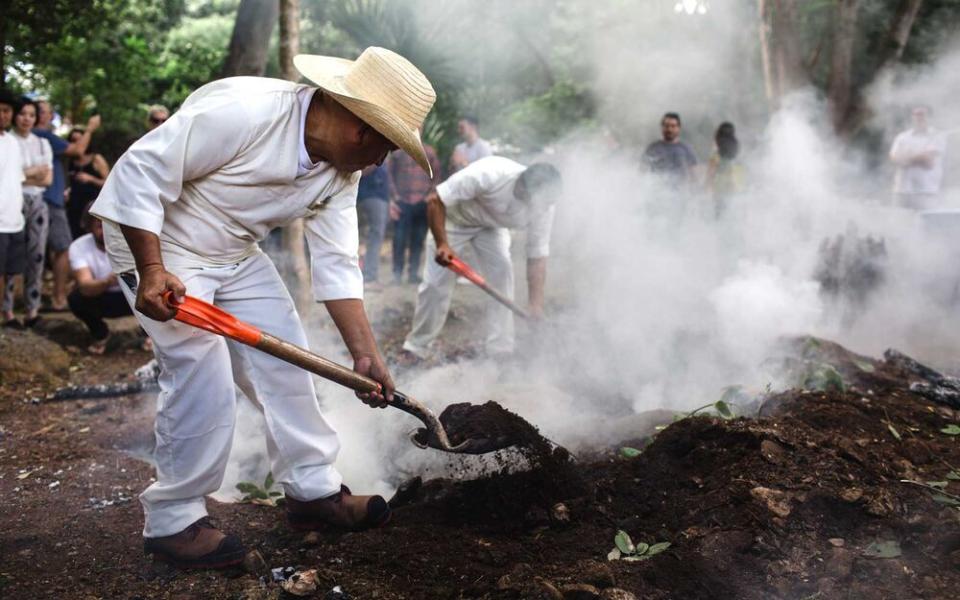
In Yaxunah, we learned about the pib, the traditional earth oven ovens used to cook Mayan specialties like cochinita pibil and pibipollo. Shoulder to shoulder with aunties, grandmothers, and stewards of the community, we ground wild achiote and local cinnamon into a ruddy paste to massage into the pork, which would be wrapped in banana leaves and buried. While we waited for our lunch, the women showed the chefs how to hand-press tortillas and cook them on the comal, rubbing a bit of habanero and pork lard onto each one. Three hours later, the cochinita pibil emerged from underground, and we inhaled it.
Other excursions included diving in the cenotes, outdoor breakfasts of tamales and hot cafe de olla, and more visits to communities around the peninsula. The chefs made contacts for purchasing corn, partnered with economic development projects, and even swapped salsa tips with the locals.
Hokol Vuh culminates in a collaborative dinner, the celebrity chefs from around the world cooking for guests and community members. Here, the tension that builds before any dinner service was amplified by the unique constraints of cooking in the middle of the rain forest. The chefs maneuvered through tight quarters, slicing jicama and de-veining chiles, scrambling for ingredients, and — in the case of the ice cream freezer shared by chefs Val Cantu and Helena Rizzo — occasionally frying their electronics in the fickle outlets.

Still, the dinner was a wild success. Redzepi and Solís decided to do a play on xek, a salad of tropical fruits commonly served during Día de los Muertos. Kyle Connaughton of Single Thread Farms in California joined forces with Zaiyu Hasegawa from Tokyo’s DEN, conjuring a sashimi with a ponzu of bitter orange, kombu, and achiote paste. Cantu, chef-owner of Californios in Oakland, and Rizzo, of Maní in São Paulo, spun their mandarin-melipona raspado a la minute, topped with candied pumpkin and toasted pepitas. Each dish reflected the complex botanical spectrum of the Yucatán, seen through the eyes of some of the world's great chefs.
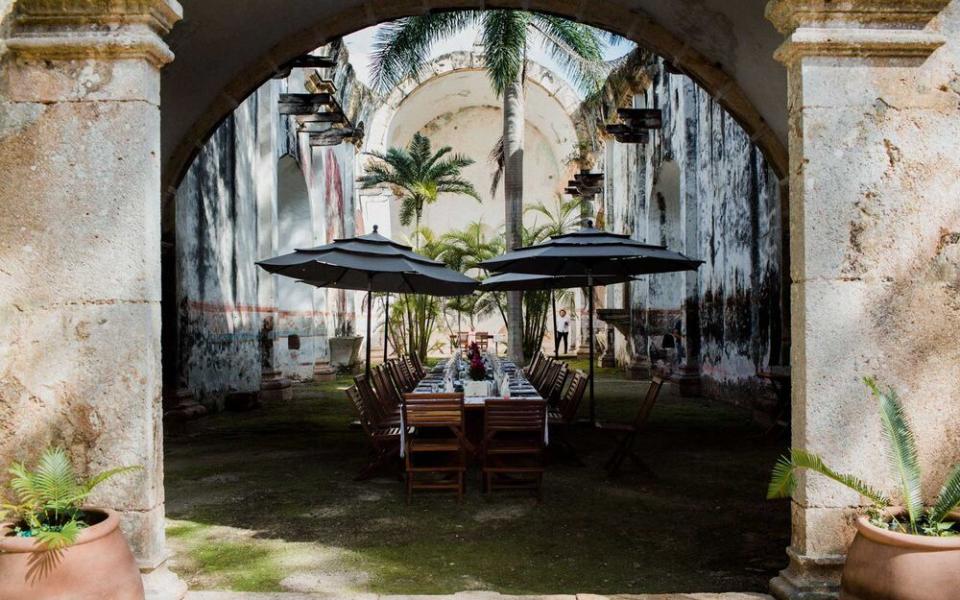
As the night drew to a close, Solís leaned over and told me: “The only true way to promote a place is to fall in love with it. That’s the main objective, so you will want to tell stories about this place when you leave.” Goal accomplished.
The next Hokol Vuh festival will take place in November 2020.
The Luxury Collection provided support for the reporting of this story.

